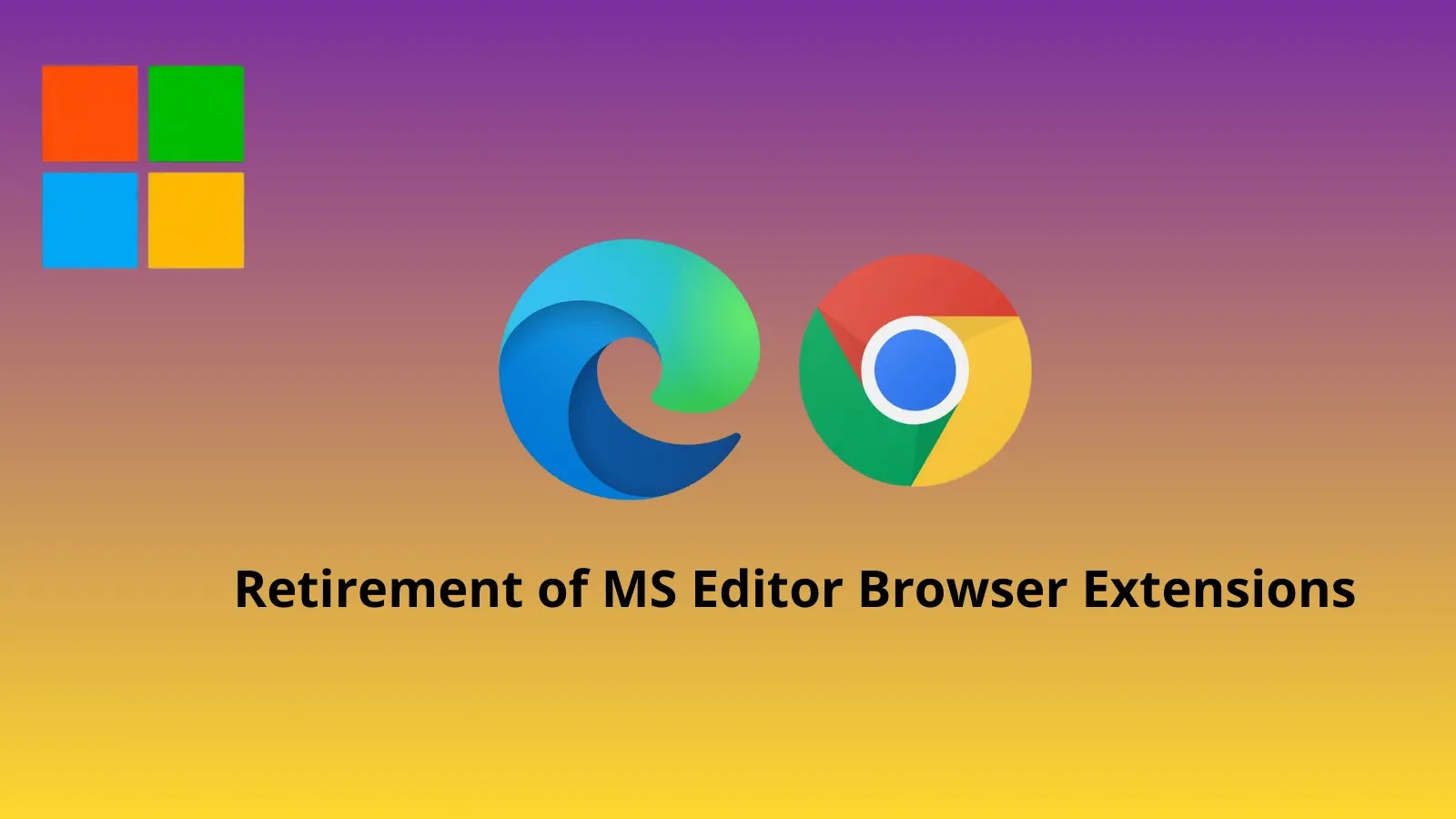
Microsoft to Kill Popular Editor Browser Extensions on Edge and Chrome
Browser extensions are often unsung heroes, silently enhancing our productivity and streamlining our digital lives. So, when a major player like Microsoft announces the deprecation of a widely used tool, it sends ripples through the professional community. Recent news from Microsoft confirms the retirement of its popular Microsoft Editor browser extensions for both Microsoft Edge and Google Chrome, a move poised to reshape how users interact with built-in writing assistance.
The Sunset of Microsoft Editor Extensions
On August 29, 2025, Microsoft publicly announced the impending deprecation of its Microsoft Editor browser extensions. These extensions, which have provided grammar, spelling, and style suggestions for countless users across Chromium-based browsers, will be officially retired on October 31, 2025. This decision marks a significant shift in Microsoft’s strategy for delivering writing aids.
Microsoft’s Strategic Pivot: AI-Powered Native Integration
The seemingly abrupt end for the Editor extensions is not an abandonment of writing assistance, but rather a strategic pivot. Microsoft’s stated rationale behind this move is to integrate AI-powered writing assistance directly into the native proofing tools of the Edge browser. This suggests a future where granular, context-aware suggestions are deeply embedded within the browser’s core functionality, potentially leveraging advanced AI models like those found in Copilot or other generative AI initiatives.
- Enhanced User Experience: By moving functionality natively, Microsoft aims to create a more seamless and intuitive writing experience, eliminating the need for separate extension installations.
- Performance Benefits: Native integration can potentially lead to improved performance and reduced resource consumption compared to standalone extensions.
- Unified Ecosystem: This change aligns with Microsoft’s broader vision of a unified and intelligent ecosystem where AI capabilities are pervasive across its products and services.
Implications for Users and IT Professionals
For individuals and organizations heavily reliant on the Microsoft Editor extensions, this announcement necessitates a swift adjustment. Users will need to acclimate to Edge’s built-in proofing tools or explore alternative third-party writing aids for Chrome.
IT departments and system administrators should consider the following:
- User Communication: Inform end-users about the upcoming change and the switch to native Edge functionality or alternative solutions.
- Training and Support: Provide guidance or brief training sessions on how to effectively utilize Edge’s new AI-powered native writing tools.
- Policy Review: If organizational policies mandate specific writing assistance tools, these may need to be updated to reflect the deprecation.
- Alternative Solutions: For Chrome users, research and recommend alternative grammar and spelling extensions that meet organizational standards.
Looking Ahead: The Future of AI in Browsers
This move by Microsoft is indicative of a broader trend: the increasing integration of artificial intelligence directly into browser functionality. As AI models become more sophisticated, we can expect browsers to evolve beyond mere content display tools, transforming into intelligent assistants that proactively help with everything from content creation to information synthesis. This shift promises a more integrated and intelligent browsing experience, though it also brings new considerations for privacy, data handling, and user autonomy.
Key Takeaways
- Microsoft Editor extensions for Edge and Chrome will be deprecated on October 31, 2025.
- This decision is part of Microsoft’s strategy to integrate AI-powered writing assistance directly into Edge’s native proofing tools.
- Users should prepare to transition to Edge’s built-in features or explore alternative third-party extensions for Chrome.
- This represents a broader industry trend of deeper AI integration into browser core functionalities.





